No progress without workers’ inclusion
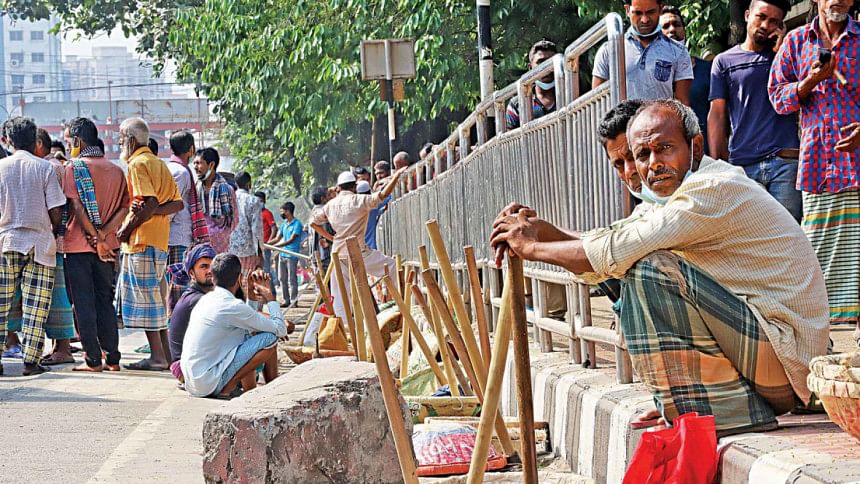
Although Bangladesh places great importance on May Day and officially celebrates it as a national holiday, workers in Bangladesh face significant challenges in organising and forming unions. There are barriers to forming unions, and even when unions are established, they often face difficulties in functioning, especially if the employers are opposed to them.
Out of the six crore workers in Bangladesh, only around one crore have their trade union rights recognised. Compared to other South Asian countries, workers in Bangladesh are paid less, and the country has one of the worst workplace safety records.
Historically, trade unions received support from major political parties until 1990, but once these parties came to power, they didn't prioritise workers' demands and instead used politically affiliated trade unions against the trade union movement. Additionally, during workers' agitations, intervention by departments of labour, industrial police, and security intelligence agencies often occurred, resulting in actions taken against the workers rather than addressing their grievances. This highlights a complex relationship between political interests and labour rights in Bangladesh.
Compared to trade union rights in other South Asian countries like India, Sri Lanka, Nepal, and Pakistan, Bangladesh faces greater challenges concerning rights, social security, and wages. In these neighbouring nations, trade unions have more robust legal frameworks and bargaining power, resulting in better protection for workers' rights, enhanced social security measures, and comparatively higher wages. However, in Bangladesh, trade union activities are frequently met with obstacles such as legal restrictions, harassment, and violence, thus limiting workers' ability to organise and advocate effectively. As a result, workers in Bangladesh often experience greater vulnerabilities in terms of rights protection, social security benefits, and wages.
Bangladesh is closely monitored by international bodies such as the International Labour Organization (ILO), as well as by the European Union and the United States.
The relationship between Bangladesh and the United States Trade Representative (USTR) often revolves around trade agreements, labour rights, and economic policies. The USTR monitors trade practices and negotiates trade deals on behalf of the United States. Bangladesh's trade relations with the US can be influenced by factors such as labour rights standards, intellectual property protection, and market access. Discussions between Bangladesh and the USTR include issues like improving labour conditions, enforcing trade agreements, and promoting fair trade practices.
The European Union (EU) and trade unions in Bangladesh have various interactions and interests. The EU is a significant trading partner for Bangladesh, importing goods such as textiles and garments. The EU has been involved in initiatives to improve labour standards and human rights in Bangladesh, such as through the Bangladesh Sustainability Compact, which aims to promote responsible business conduct and improve working conditions.
The EU has been actively engaged with the ILO in Dhaka to improve trade union rights and safety in the workplace in Bangladesh. This engagement often involves supporting initiatives aimed at promoting labour rights, improving working conditions, and enhancing workplace safety standards. The EU provides funding and technical assistance to support projects implemented by the ILO in Bangladesh, which focus on areas such as capacity building for trade unions, promoting dialogue between workers and employers, and strengthening labour inspection systems to ensure compliance with international labour standards. Additionally, the EU works closely with the ILO and other stakeholders to address challenges related to labour rights violations, including efforts to combat forced labour, child labour, and discrimination in the workplace. Overall, this collaboration between the EU and the ILO in Dhaka plays a crucial role in advancing labour rights and improving working conditions for workers in Bangladesh.
As we currently receive GSP facilities from European countries, and those from North America are now suspended, we want to continue receiving these benefits from the European Union. Additionally, we aim for the withdrawal of suspension from North American countries. We seek to improve human rights, trade union rights, and rights to organise workers, and foster healthy, productive industrial relations. It is meaningless to provide GSP facilities for exporting goods to foreign countries if the benefits neither reach the workers and the poor, nor generate employment.
The Bangladeshi government and employers often resist the formation of robust trade unions, fearing potential conflicts with their interests. They attempt to exert control by favouring politically affiliated trade unions. Similarly, other professional organisations find themselves compelled to align with government agendas. This apprehension toward independent civil society bodies reflects the government's deep-seated concerns.
We have to ensure that people are not left behind, that all take part in the benefit of progress and economic development. Without the inclusion of the deprived and marginalised, we cannot say we made progress.
Mesbahuddin Ahmed is president of Jatiyo Sramik Jote.
Views expressed in this article are the author's own.
Follow The Daily Star Opinion on Facebook for the latest opinions, commentaries and analyses by experts and professionals. To contribute your article or letter to The Daily Star Opinion, see our guidelines for submission.

 For all latest news, follow The Daily Star's Google News channel.
For all latest news, follow The Daily Star's Google News channel. 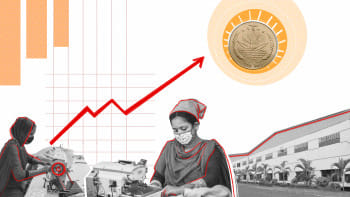
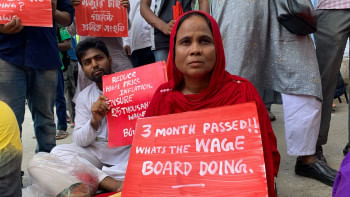



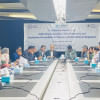





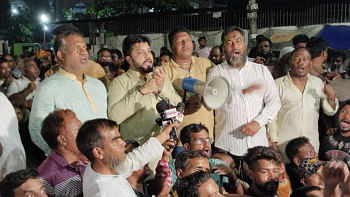
Comments